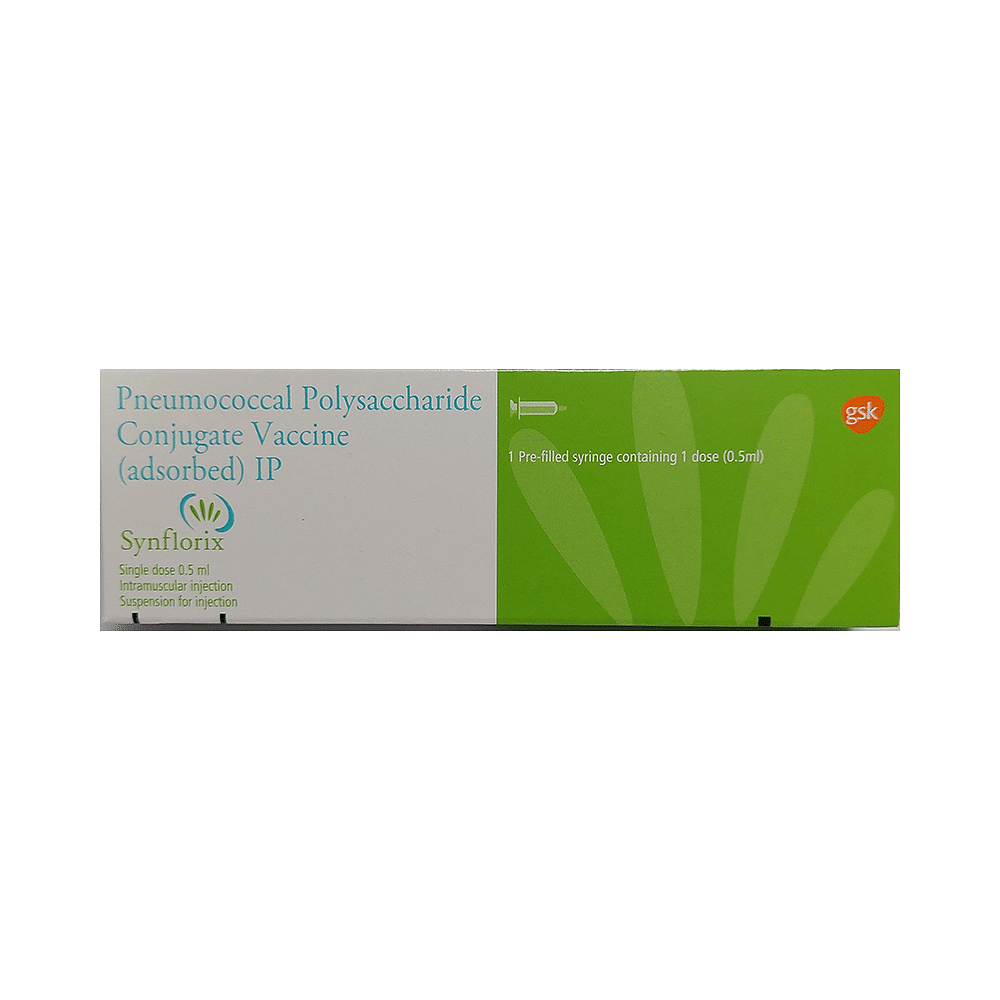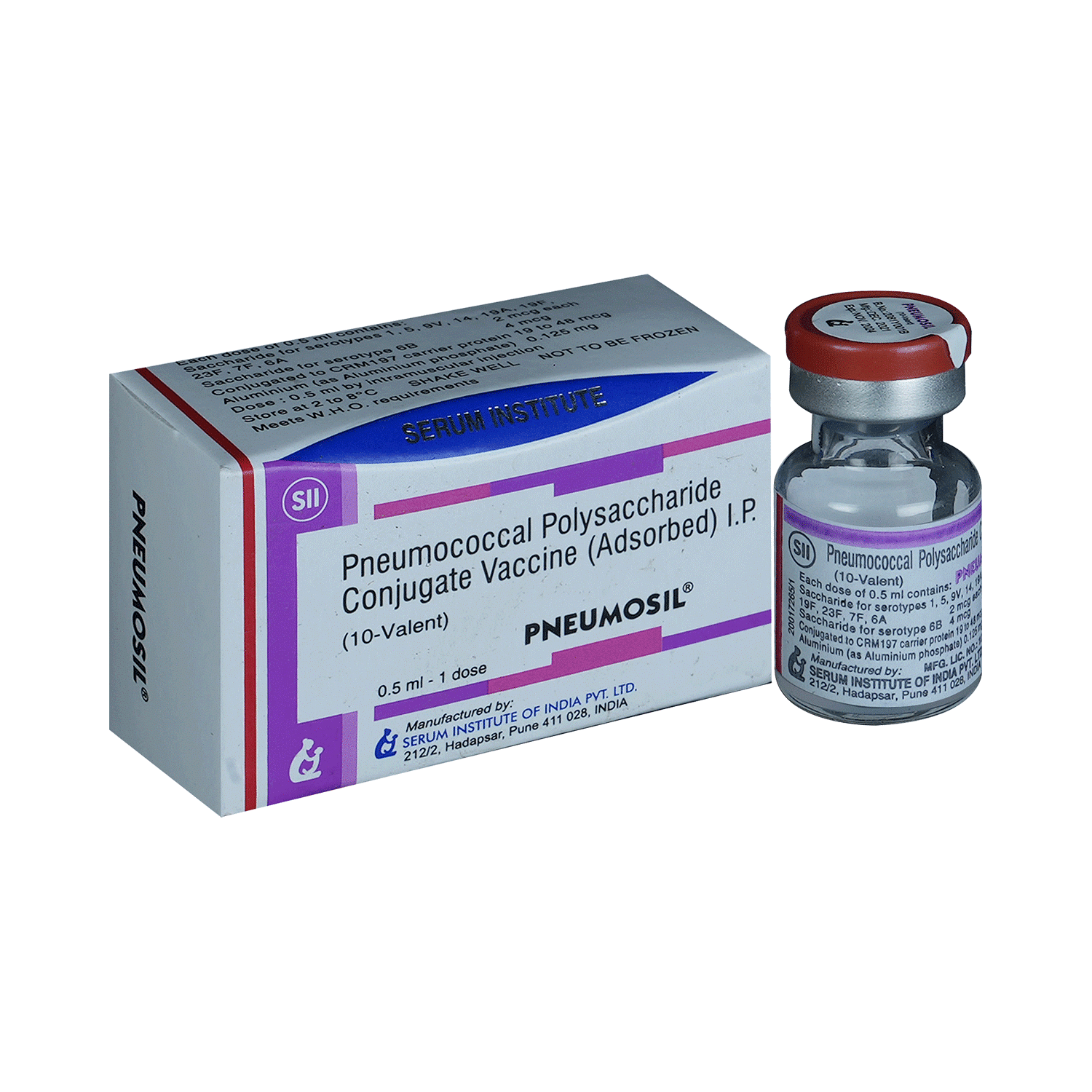
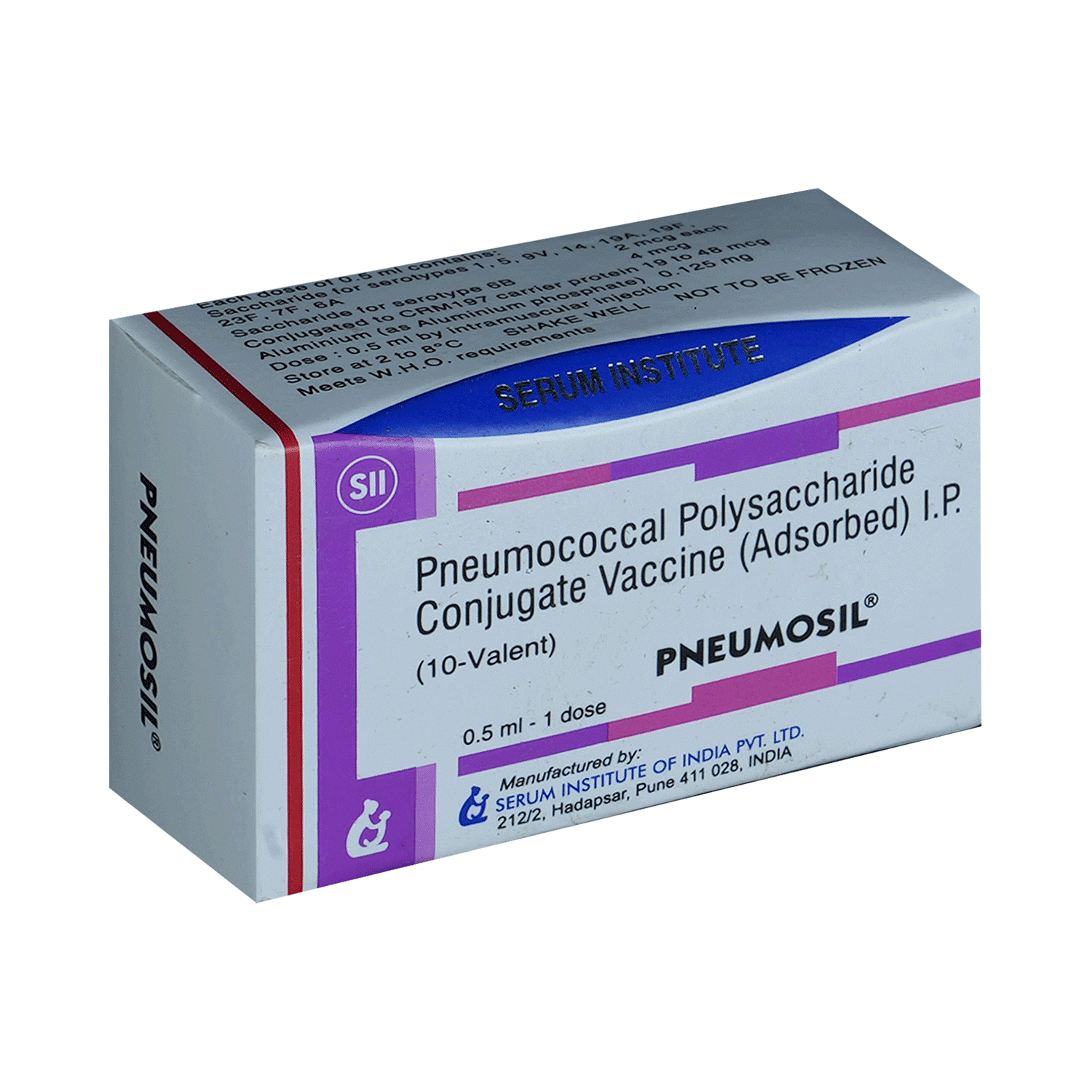
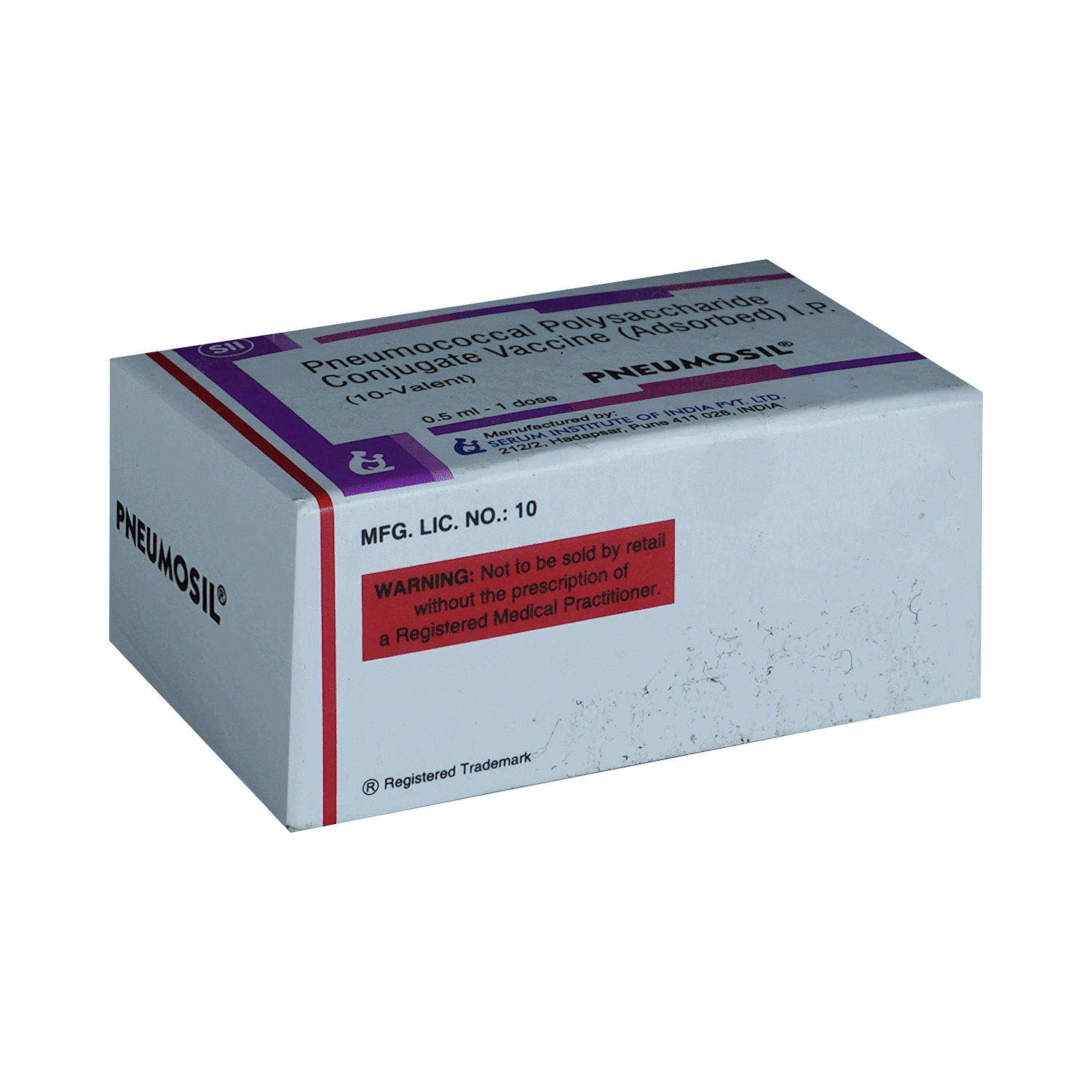
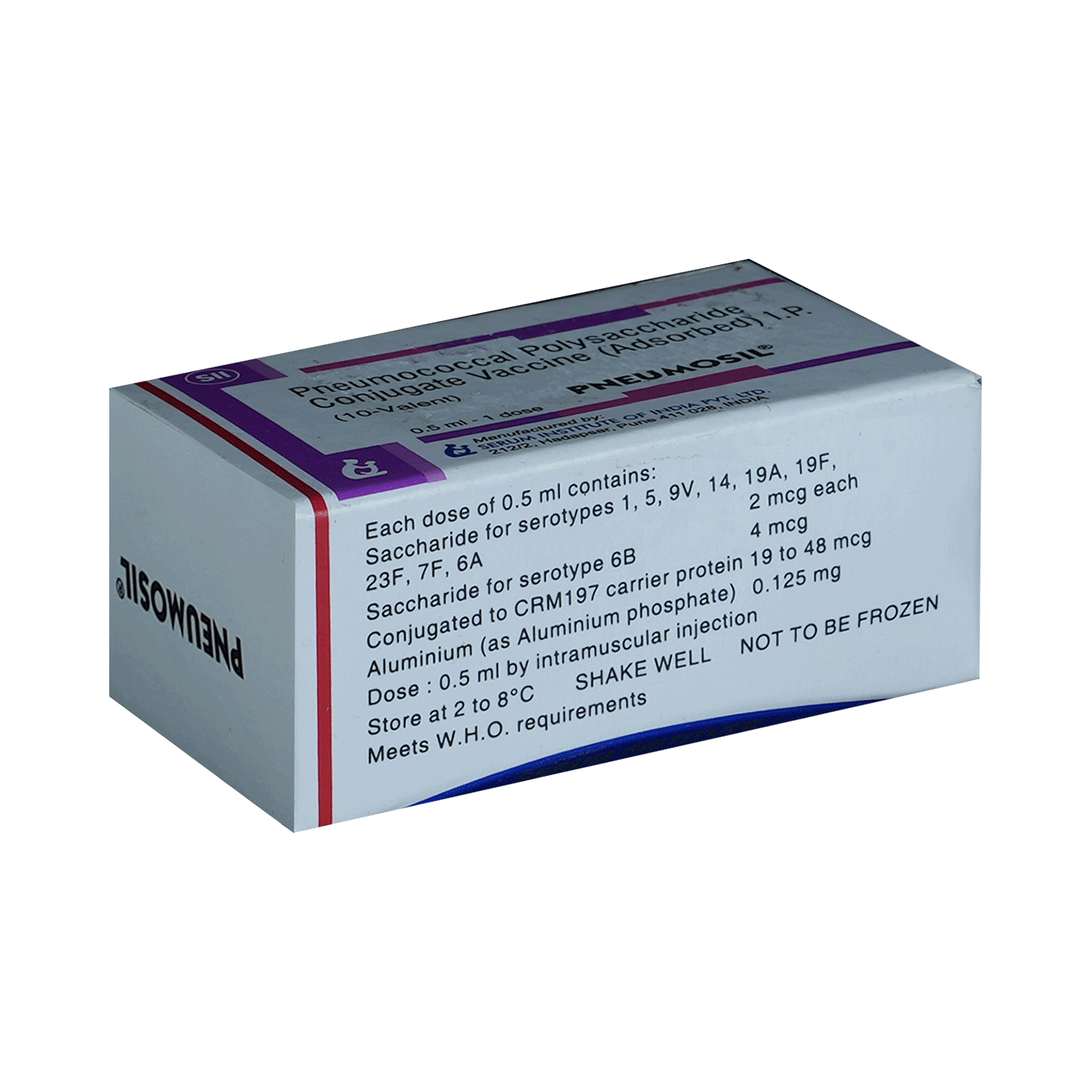
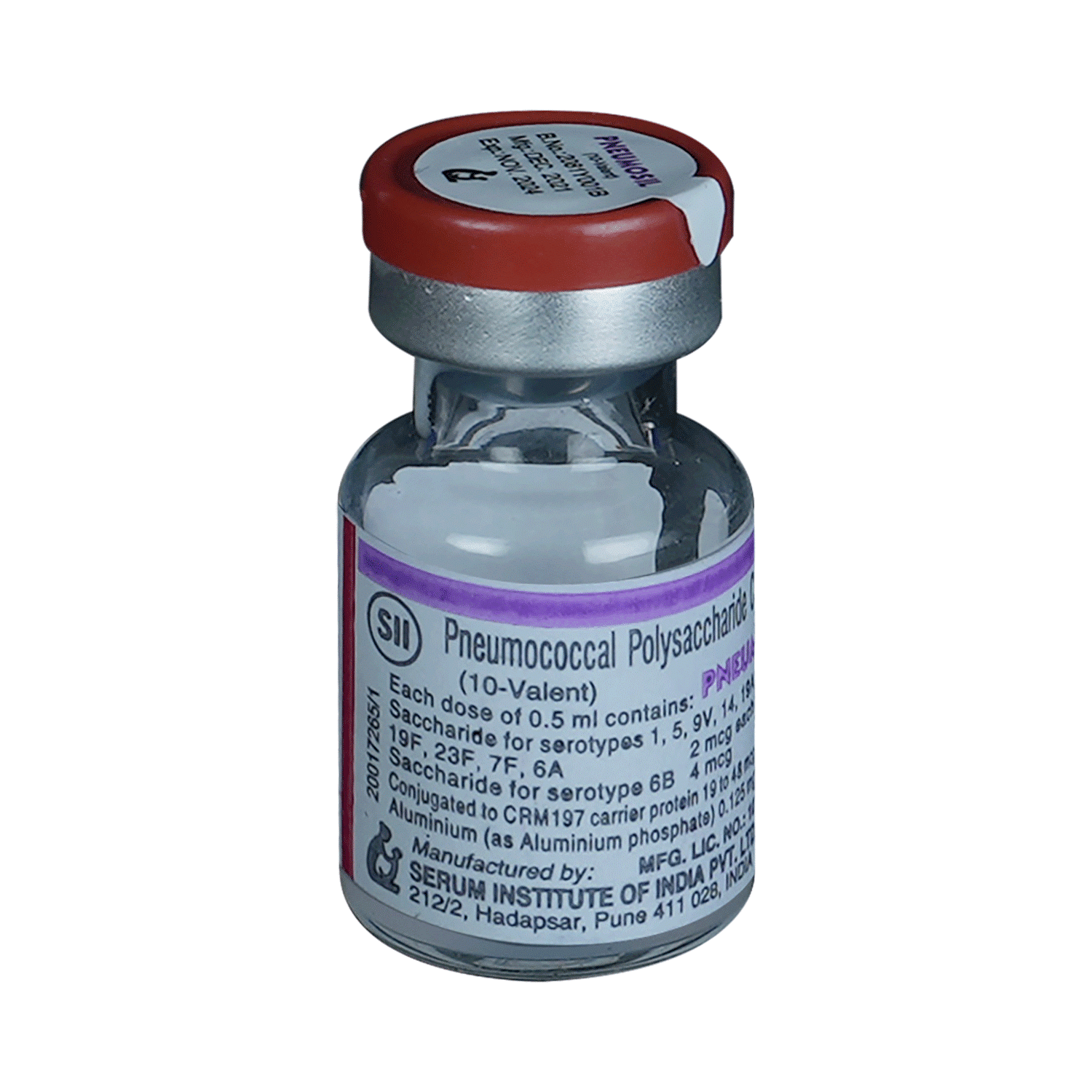
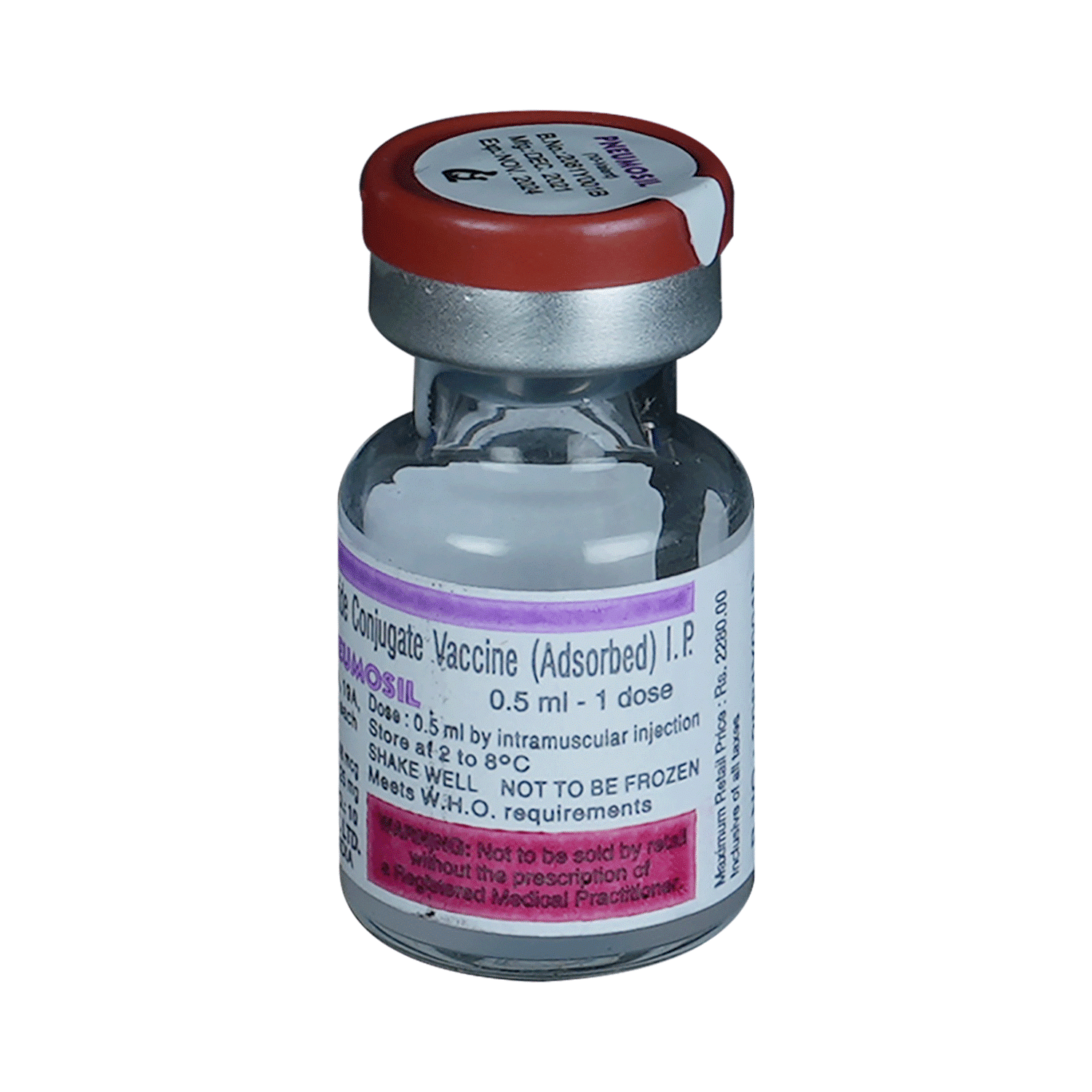
Pneumosil Vaccine
Manufacturer
Serum Institute Of India Ltd
Salt Composition
Pneumococcal Polysaccharide Conjugate Vaccine
Key Information
Short Description
Pneumosil Vaccine is a vaccine that helps protect your child against diseases such as pneumonia, meningitis, ear and blood infections.
Dosage Form
Injection
Introduction
Pneumosil Vaccine provides protection against diseases caused by ten different strains of bacteria. It is usually given as an injection into the muscle (intramuscularly) of the upper thigh or upper arm by a doctor or nurse. It should not be self-administered. Your doctor will decide the dose that is best for you. Common side effects of this vaccine include loss of appetite, irritability, drowsiness, and fever. You may also notice some injection site reactions like pain, swelling, or redness. Consult your doctor if these side effects persist or get worse. To ensure safety before receiving the vaccine, it is important to let the doctor know if your child has any other illnesses. You should also tell the doctor if your child is taking any other medicines.
Directions for Use
Your doctor or nurse will give you this medicine. Kindly do not self-administer.
Safety Information
Side Effects
loss of appetite irritability drowsiness fever pain swelling redness
Alcohol Warning
It is not known whether it is safe to consume alcohol with Pneumosil Vaccine. Please consult your doctor.
Breastfeeding Warning
Information regarding the use of Pneumosil Vaccine during breastfeeding is not available. Please consult your doctor. Pneumosil Vaccine is not intended for use in adults.
Pregnancy Warning
Information regarding the use of Pneumosil Vaccine during pregnancy is not available. Please consult your doctor.
Interacting Medicines
Mycophenolate mofetil Azathioprine Mercaptopurine Carbamazepine
How it works
Pneumosil Vaccine is a vaccine which helps develop immunity by initiating a mild infection. This type of infection does not cause illness but stimulates the body's immune system to produce antibodies (proteins) to protect against any future infections.
Quick Tips
Pneumosil Vaccine is given to prevent invasive diseases caused by pneumococcal bacteria such as pneumonia, meningitis, ear, and blood infections. It is usually given as an injection into the muscle (intramuscular) of the upper arm or upper thigh. It is usually given twice or thrice with at least a gap of 1 month between each dose. Inform your doctor if your child has an infection with a high temperature as vaccination may need to be delayed until recovery. It may cause fever. Inform your doctor if it does not go away or if it gets higher than 102 degrees Fahrenheit.
Related Medicines
Frequently asked questions
Who should not be given Pneumosil Vaccine?
Use of Pneumosil Vaccine should be avoided in patients who are allergic to Pneumosil Vaccine or any of its components. However, if you are not aware of any allergy, or if you are using Pneumosil Vaccine for the first time, consult your doctor.
What is a booster dose or booster vaccine or booster shot?
A booster dose or booster vaccine or booster shot is an additional dose of a vaccine that may have to be administered periodically after completing the initial or primary vaccination against certain diseases. This helps to ‘boost’ your immunity against such diseases so that you are adequately protected against them.
Who should be given Pneumosil Vaccine?
Pneumosil Vaccine is indicated to be used in infants and children from the age of 6 weeks up to 5 years against diseases caused by the organism called Streptococcus pneumoniae, such as pneumonia, meningitis, blood infection and ear infection.
How many doses of Pneumosil Vaccine are needed?
Usually, three doses are recommended for a child at a gap of at least 1 month. The primary dose may be given as early as 6 weeks of age and after the third dose, an additional booster dose may be given after 6 months of the third dose. However, it is also possible to have a three-dose regimen only. In case the child has not been vaccinated with Pneumosil Vaccine earlier, an alternate regimen may also be followed which may have two doses and an additional third dose (booster dose). Discuss with your doctor if you are not sure.
What if I miss a dose of Pneumosil Vaccine?
If a scheduled booster dose of Pneumosil Vaccine is missed, talk to your doctor and arrange another visit as soon as possible. Try not to miss any doses at all. Make sure your child finishes the complete course without missing any doses. Otherwise, your child may not be fully protected against the diseases.
What are the side effects of Pneumosil Vaccine?
The most common side effects of Pneumosil Vaccine are injection site redness, pain or swelling, allergic reactions, irritability, loss of appetite, drowsiness and fever. Not everyone experiences these side effects. If any of these side effects worry you or persist for a longer duration of time, please consult your doctor.
Can I faint because of Pneumosil Vaccine?
Syncope (fainting) can occur following, or even before, any vaccination especially in adolescents as a psychogenic response to the needle injection. This can be accompanied by several neurological signs such as transient visual disturbance, paraesthesia and tonic-clonic limb movements during recovery. It is important that procedures are in place to avoid injury from faints.
How is Pneumosil Vaccine given?
Pneumosil Vaccine is only given by a doctor or a trained healthcare professional, into a muscle (intramuscularly), normally in the upper leg muscle if the infant is less than 12 months of age. In case the child is more than 12 months old, the vaccine will usually be given in the upper arm muscle. Do not administer this vaccine yourself. Firm pressure should be applied to the injection site, without any rubbing, for at least 10 seconds. This helps with proper absorption.
Is Pneumosil Vaccine safe to use in pregnancy and lactation?
Pneumosil Vaccine is not intended for use in adults, adequate data on its use during pregnancy and lactation is not available.
Is Pneumosil Vaccine a safe vaccine?
Various studies and trials have shown that Pneumosil Vaccine is a safe and effective vaccine. Hence, it has been approved for use and recommended by various medical organizations and doctors all around the world. Pneumosil Vaccine is also well tolerated. Any side effects that may be seen with this vaccine are usually minor and tend to resolve quickly.



